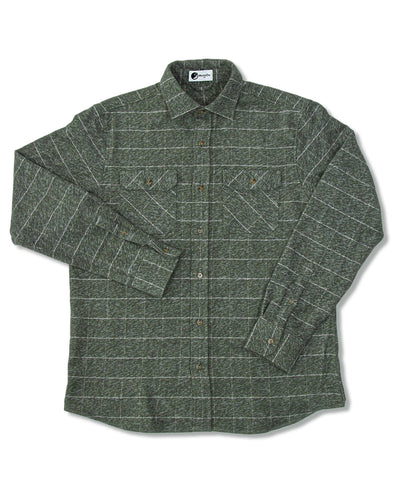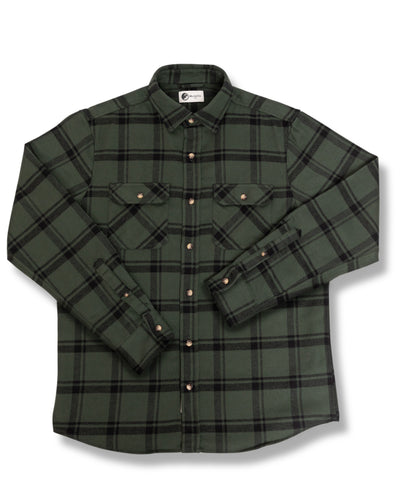Sizzling Showdown: Charcoal vs. Gas Grill
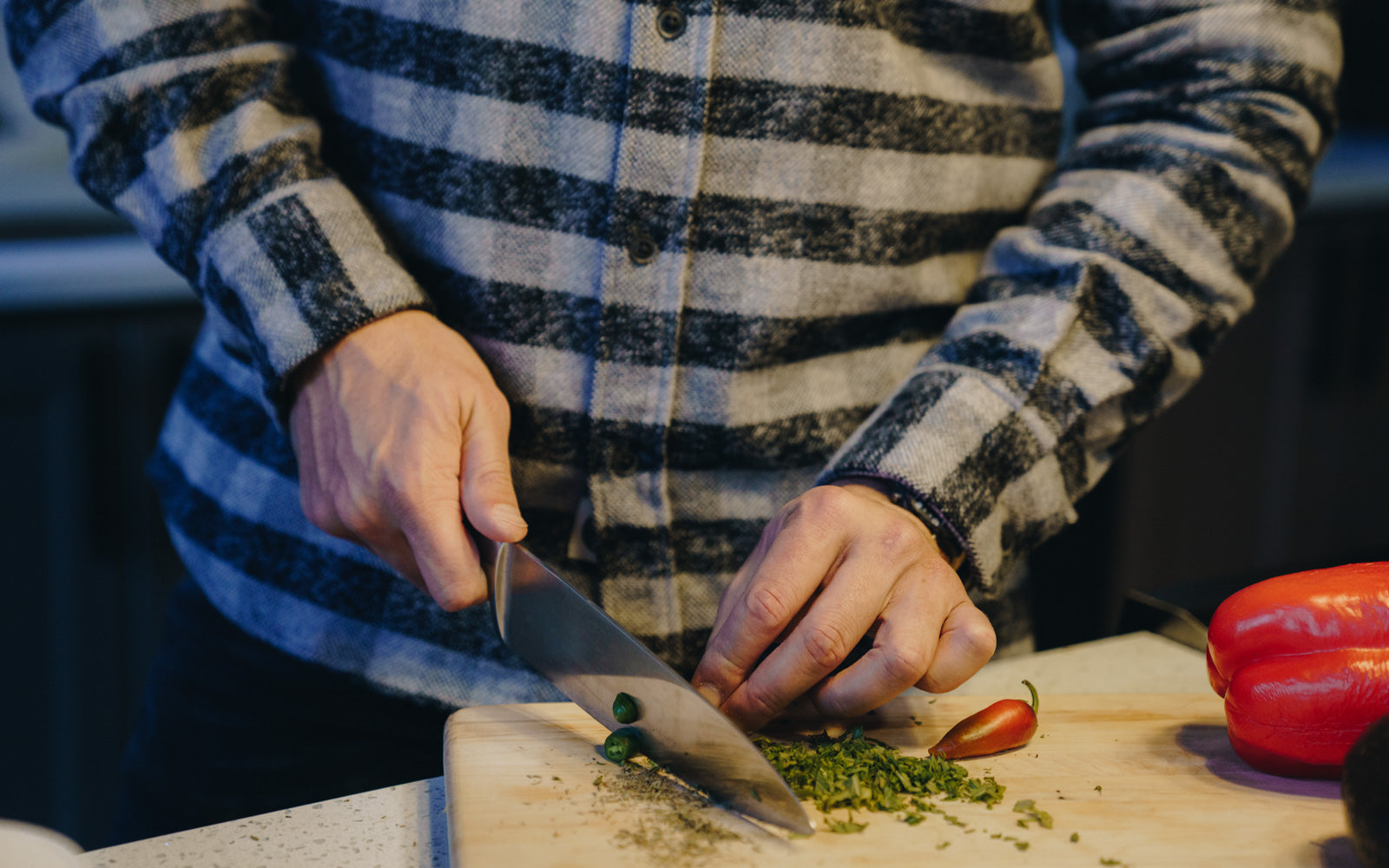
MuskOx Grand Flannel, Charcoal Gingham
As the days grow longer and the aroma of barbecues fills the air, the timeless debate of charcoal versus gas grills takes center stage. The choice between these two popular options goes beyond flavor preferences; it involves considerations of safety, convenience, and overall grilling experience. If you want to be titled as “King of the Grill”, it’s important to find your culinary preference. Let's dive into the pros and cons of both, helping you make an informed decision for your next outdoor culinary adventure.
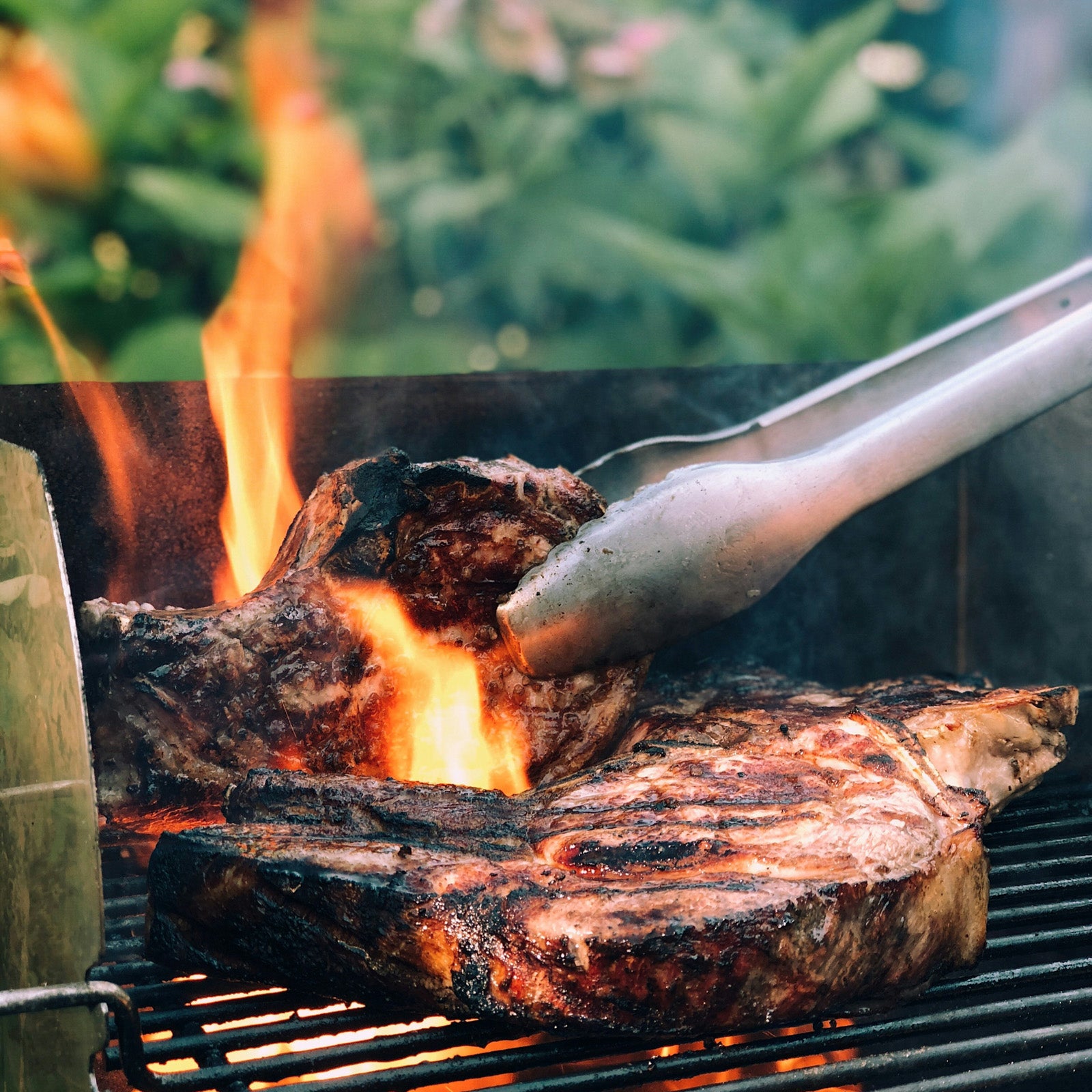
The Charcoal Grill Experience, Pros
- Smoky Ambrosia: Charcoal grills are synonymous with the rich, smoky flavor that grilling enthusiasts adore. As the charcoal smolders and imparts its essence onto the food, a distinctive aroma and taste develop, creating the hallmark of traditional outdoor cooking
- Seared Perfection: The high heat generated by charcoal allows for a splendid sear on meats, locking in juices and intensifying the flavor. The caramelization of the meat's exterior creates a mouthwatering contrast to the tender interior
- Versatility: The ability to control heat zones makes charcoal grills versatile for a range of cooking styles, from slow roasting to high-temperature grilling
The Charcoal Grill Experience, Cons
- Longer Prep Time: Charcoal grills generally take more time to heat up, demanding patience and pre-planning
- Messy Cleanup: The ash residue and charcoal remnants can make post-grilling cleanup a bit more labor-intensive
- Fire Safety: Charcoal grills involve an open flame, requiring caution and a safe setup away from flammable materials
- Carbon Monoxide Risk: Charcoal grills emit carbon monoxide during use, necessitating proper ventilation in enclosed spaces
The Best Things to Grill on a Charcoal Grill
- Steaks: Charcoal grills can achieve high temperatures, perfect for searing steaks and creating a flavorful crust while retaining a juicy interior
- Burgers: The smoky flavor from charcoal grilling enhances the taste of burgers, providing a classic backyard barbecue experience
- Ribs: Low and slow cooking on a charcoal grill produces tender, smoky ribs with a delicious charred exterior
- Vegetables: Grilling vegetables over charcoal imparts a smoky flavor and caramelization, elevating their natural sweetness. Try bell peppers, corn on the cob, and zucchini
- Kabobs: Charcoal grills are ideal for skewered meats and vegetables, allowing for even cooking and a nice char
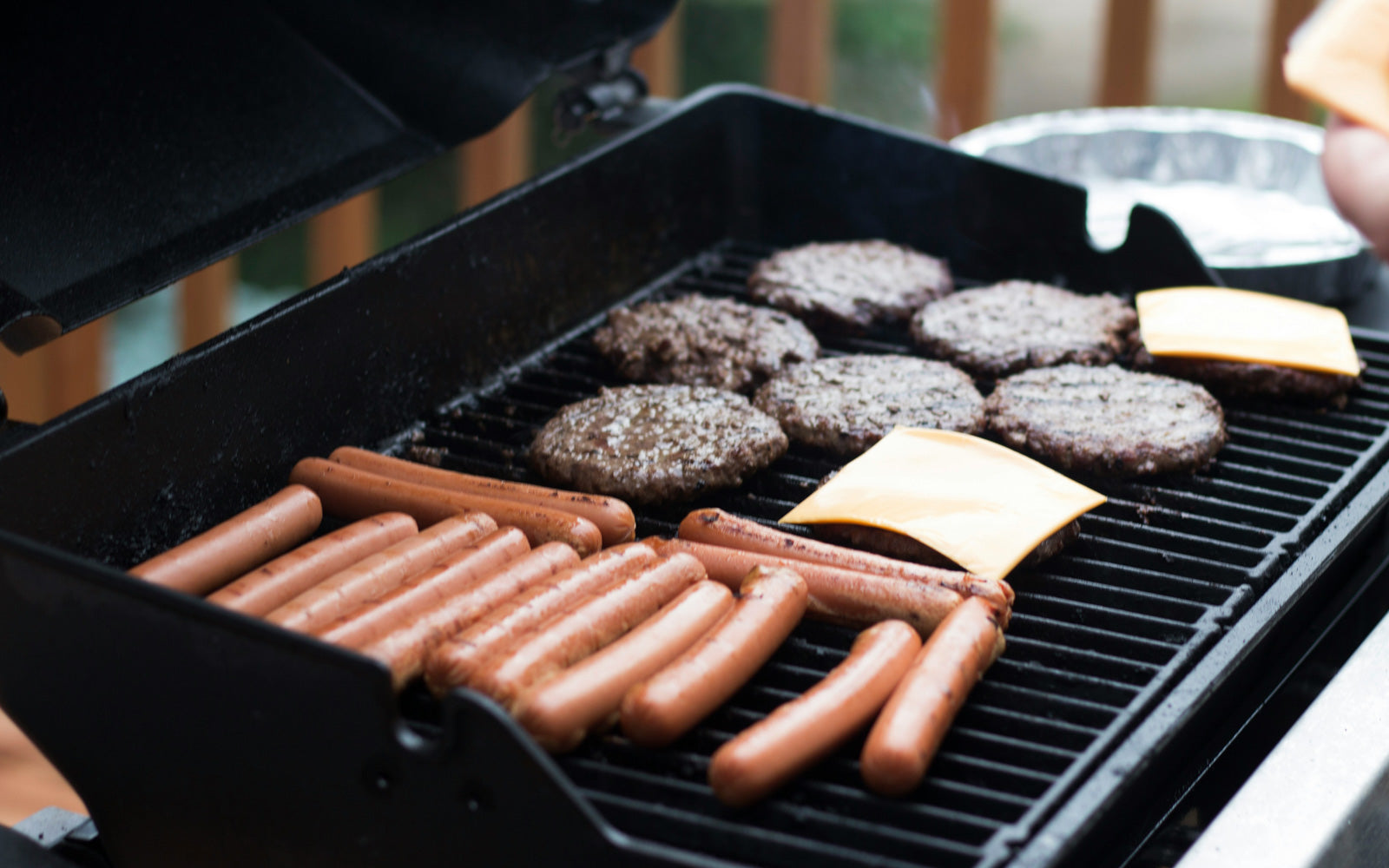
The Gas Grill Glory, Pros
- Consistent Cooking: Gas grills offer a reliable and consistent heat source, ensuring even cooking throughout. This controlled environment allows for precise temperature management, especially useful for delicate dishes
- Efficiency in Ignition: With a simple turn of a knob, gas grills ignite quickly and reliably, allowing you to start cooking almost immediately. No need to wait for charcoal to heat up or deal with the hassle of lighting fluid.
- Convenience: Gas grills are incredibly convenient for busy lifestyles. They require minimal setup and cleanup, with no ash residue or charcoal remnants to deal with after grilling. Plus, many gas grills come equipped with features like side burners, warming racks, and built-in thermometers for added convenience.
The Gas Grill Glory, Cons
- Limited Flavor Profile: Gas grills may lack the smoky flavor associated with charcoal, which could be a deal-breaker for grill enthusiasts
- Dependency on Fuel: Gas grills rely on a steady supply of propane or natural gas, which means you'll need to keep an eye on your fuel levels and make sure you have enough on hand for your next cookout.
- Initial Cost: Gas grills typically have a higher upfront cost compared to charcoal grills, although they often come with additional features and convenience factors that justify the investment over time.
The Best Things to Grill on a Gas Grill
- Fish: Gas grills offer precise temperature control, making them perfect for grilling delicate fish filets without the risk of flare-ups or overcooking
- Chicken: Gas grills provide evenly heat distribution, ensuring evenly cooked chicken breasts, thighs, or wings with a juicy interior and crispy exterior.
- Vegetarian Options: Gas grills are excellent for grilling vegetarian options like veggie burgers, tofu, and portobello mushrooms, providing even heat distribution and minimal risk of burning
- Kebabs: Gas grills can handle skewered meats and vegetables well, providing consistent heat for even cooking without the need for constant monitoring.
- Grilled Sandwiches: Gas grills with flat surfaces are perfect for making grilled sandwiches like paninis, providing even heat distribution and a crispy exterior without the need for flipping.
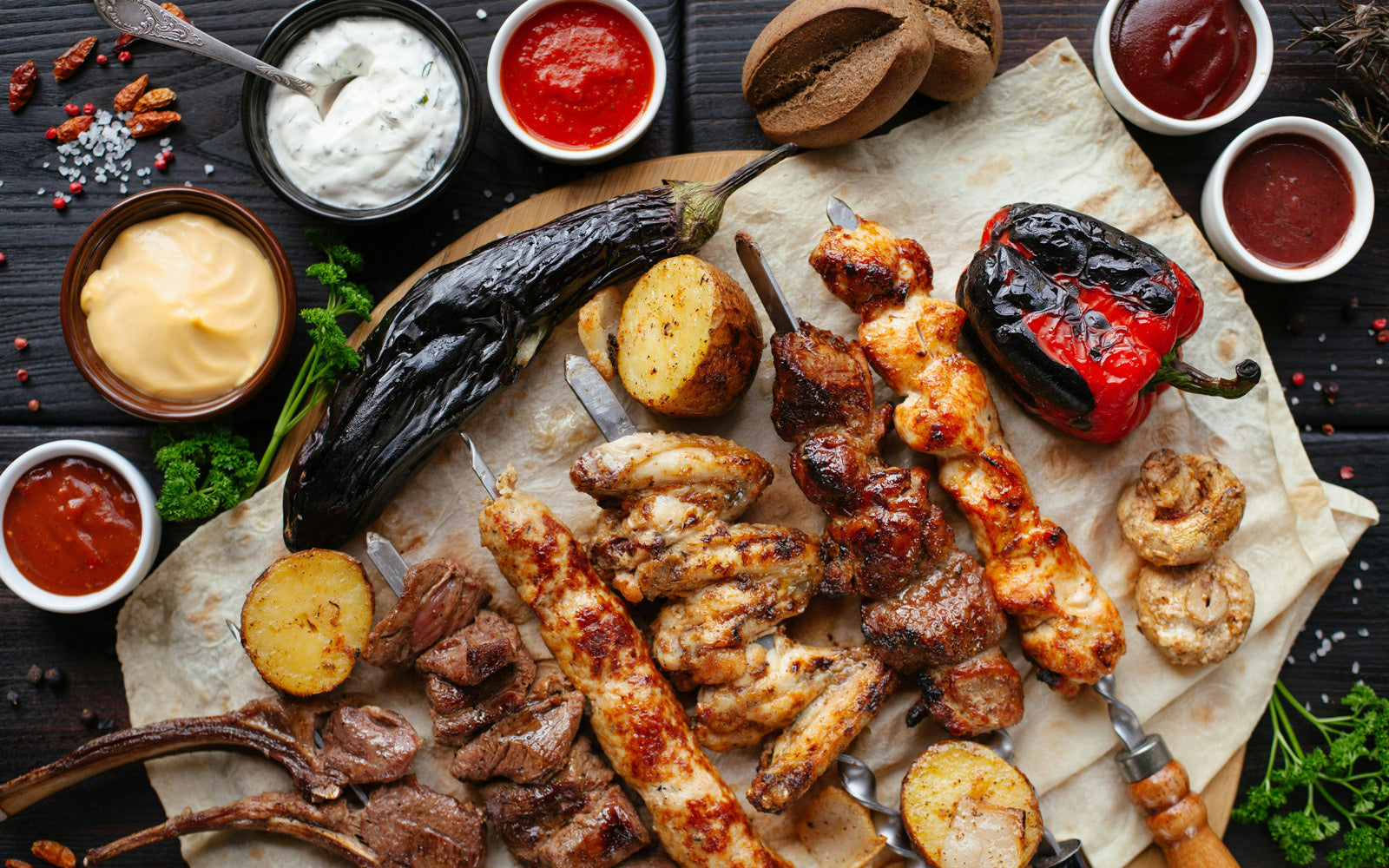
When it comes to flavor, the choice between charcoal and gas grills is a matter of personal preference. Charcoal grills immerse your dishes in the deep, smoky notes of tradition, offering a sensory journey that resonates with grilling aficionados. On the other hand, gas grills deliver a clean and consistent experience, ensuring the natural flavors of your ingredients take center stage. While both types of grills can cook a variety of foods, charcoal grills excel at imparting a smoky flavor and high-heat cooking, while gas grills offer convenience and precise temperature control for more delicate foods. Ultimately, it comes down to your priorities and how you prefer to cook. If you value the flavor and experience of traditional grilling and don't mind the extra effort, a charcoal grill might be the way to go. However, if convenience, and easier cleanup are important to you, a gas grill offers everything you need to elevate your outdoor cooking game and create delicious meals for family and friends. The key is finding the one that aligns with your culinary vision and lifestyle.



















